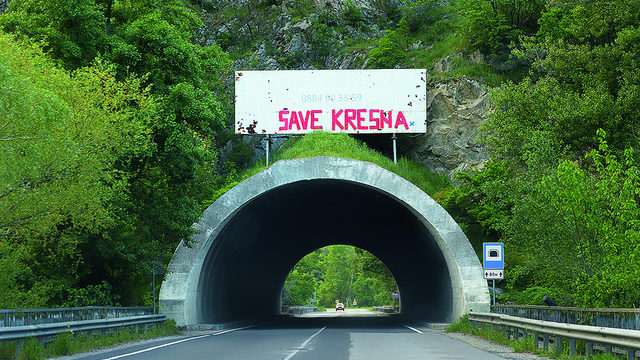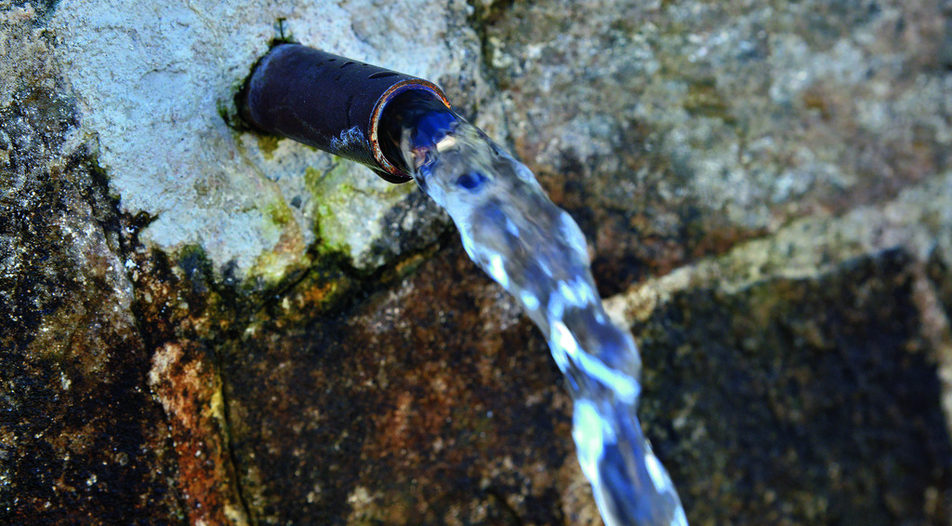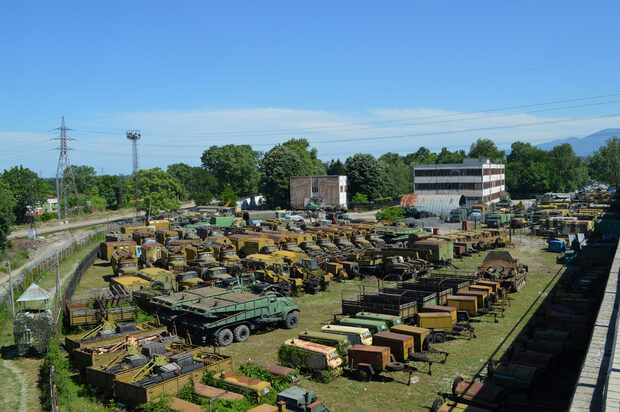In KQ's last issue we introduced you to a couple of scandals that remained on the backburner due to the arrival of the COVID-19 pandemic - the "BarcelonaGate" investigation that linked Prime Minister Boyko Borissov to the purchase of a mansion for an alleged mistress and the manmade water crisis in Pernik. Now we will introduce you to three more scandals that would have topped the news on a normal day but never gained momentum because of the overwhelming focus on protests and political instability over the summer.
Dam(n), there is no water!
Picking up on the topic of Pernik - a city of 120,000 that remained without access to fresh water due to long-running negligence by the Environmental Ministry and the local administrative and water authorities - there is a larger water crisis brewing in Bulgaria.
Several key reservoirs including the two most important water sources for the entire seaside region of the country, Kamchia and Tsonevo dams, recorded critically low water levels at the end of the moderately wet summer of 2020. Currently, the Tsonevo reservoir, which feeds the Devnya industrial zone near Varna, is at less than one-third of its volume of 330 million cubic meters. Data for the Kamchia reservoir is even more menacing - the water source which has a capacity of 233 million cubic meters is, as of 21 September, filled with only 47 million cubic meters of water, or precisely 1/5 of its capacity. That is, to put it mildly, a very dangerous situation, as the Kamchia reservoir is the main water supply for two of the largest cities in Bulgaria, Varna (population: 470,000 people) and Burgas (population: 410,000).
What this means is that this winter, amidst a possible upsurge of a second COVID-19 wave, Bulgaria might face a water crisis 9 times bigger than the one in Pernik. How did it come to this? Once again, it is a combination of vested interests of politically connected individuals who own the hydroelectric power plants (HPPs) on the two reservoirs and poor water management. The owners of both HPPs are linked to the Movement of Rights and Freedoms (MRF) - the family of ex-MP and deputy environment minister Fatme Iliyaz owns Tsonevo HPP, and businessman Dimitar Tadarkov, who is close to the party's leader Ahmed Dogan, owns Kamcia HPP.
They get preferential pricing for the "green" electricity they produce, but ought to be constrained by the Environmental ministry so that they do not overuse the available water resources. Needless to say, the ministry does not execute this regulatory role very well - despite the drier summers and shorter winters over the past couple of years, Energy ministry data shows that both NPPs have been increasing their energy production and thus - their water consumption.
Compounding this is that, on average, 60% of all water that leaves the reservoirs is wasted on the way due to the poor state of the waterway infrastructure in the country, leaving a recipe for disaster.
The return of the leading Euro-Atlantic
The second overlooked story this summer concerned what at the time (spring of 2019) seemed like an earth-shattering scandal for GERB - the purchase of cheap apartments by a number of high-profile party members that became known as ApartmentGate. While the party had to put several of its figureheads on the bench due to the scandal, including Justice Minister and presidential nominee Tsetska Tsacheva, arguably the most significant loss for Mr Borissov's faction was that of Tsvetan Tsvetanov. Known as his lieutenant in the party and an "election-maker", the ex-Interior minister and head of GERB's parliamentary group was ousted after public pressure mounted against him. The State Prosecution and the Anti-Corruption agency launched a probe into the apartment deals.
After retreating briefly from public life, however, Mr Tsvetanov came back on the white horse of Euro-Atlanticism, launching a security think-tank in September 2019 and, a year later - a party called Republicans for Bulgaria - a name that left little ambiguity about which Trans-Atlantic political force inspired it. At the same time, RFL/RL's Bulgaria branch (which first came out with the investigation) pressured the State Prosecution for answers about where the probe against Mr Tsvetanov had led to, only to discover that it had been discontinued. Or, as Mr Tsvetanov's own famous slip of tongue stated in 2019 as the scandal was enveloping: "there is no one who can punish me."
The pardon Mr Tsvetanov received from the State Prosecution did not shock many, as the ApartmentGate scandal was all but forgotten by September 2020. The political future of his formation is unclear - it might seek to assimilate parts of GERB and form some sort of coalition with the nationalist-conservative fractions, or it might find itself biting more than it can chew and become a one-hit wonder at the next elections. In any case, the way the scandal unfolded displayed how a senior politician's name can be whitewashed within a year.

The Struma Highway debacle
Last, but not least, comes the case of the Kresna gorge section of the Struma Highway that is supposed to connect Sofia and Thessaloniki. The complicated infrastructure project has been years in the making and was supposed to be funded by the EU, as it is part of one of several major cross-European transport corridors. Yet, according to an insider who spoke to Capital weekly at the end of September, it appears that the government in Sofia would rather pay for the highway section with budget funds instead of complying with European environmental demands.
According to the whistle-blower information, the Road Infrastructure agency (RIA) is going to request 650 million euro to construct the 27-km long section. Paradoxically, the state will pay for a highway, but will only receive a two-lane expressway with only two lanes in each direction and a speed limit of 90 km/h. What is more, the project's planned completion date is 2027 - almost two decades after the start of the construction of the highway.
The lobby of the large construction companies in Bulgaria likely influences all of that. In 2015 it publically advocated for the project for Kresna that sees the use of viaducts over the gorge rather than tunnels underneath. Why? Because the Bulgarian firms can only build bridges and not tunnels, and they did not want to miss out on lucrative contracts.
In KQ's last issue we introduced you to a couple of scandals that remained on the backburner due to the arrival of the COVID-19 pandemic - the "BarcelonaGate" investigation that linked Prime Minister Boyko Borissov to the purchase of a mansion for an alleged mistress and the manmade water crisis in Pernik. Now we will introduce you to three more scandals that would have topped the news on a normal day but never gained momentum because of the overwhelming focus on protests and political instability over the summer.












